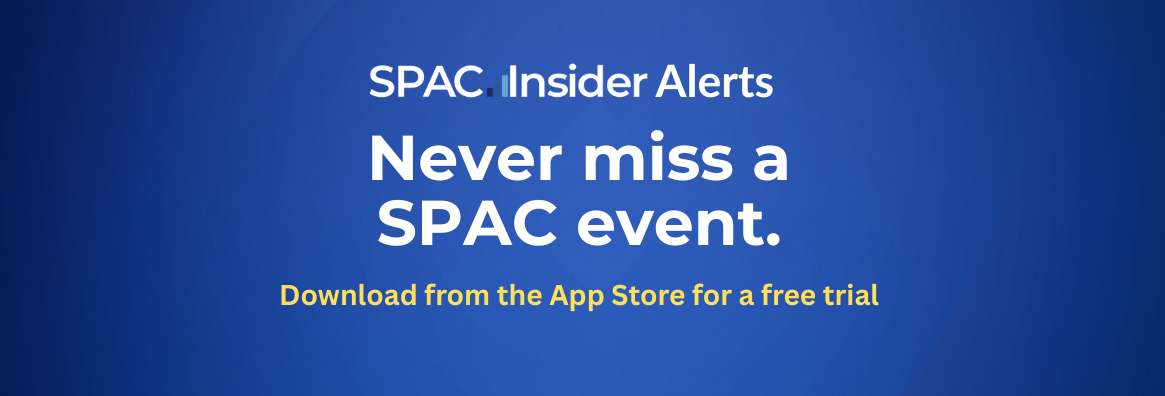Presumably, with stronger “legs” this time.
Chamath Palihapitiya has been “soft launching” his re-entry into the SPAC market since early summer, but last night he made it official. American Exceptionalism Acquisition Corp. A, was filed Monday evening as a $250 million warrantless/rightless SPAC, marking the self-proclaimed “King of SPACs’” first new vehicle since the 2020–2021 boom.
Few sponsors provoke as much emotion in SPACLand as Chamath. That’s because he went from hero to zero during the ZIRP era and took a lot of investors with him. But when Chamath files, the market still pays attention.
And now he’s back and we have a new S-1 to evaluate. But before we get there, let’s take a look at the history of the Social Capital SPACs to lay some groundwork.
For starters, the Social Capital team has launched 10 SPACs, with mixed results: six completed mergers, four liquidated in the 2022–2023 downturn. The outcomes, on a split-adjusted basis, are sobering with average and median trading prices of $5.42 and $2.51, respectively.
Nonetheless, the clear outlier is Sofi (NASDAQ: SOFI), still trading around $23.77. Opendoor also made headlines this summer as a memestock, but Clover Health, ProKidney, Akili, all enjoyed a brief moment in the sun but now collectively trade below $3.00.

And then there’s Virgin Galactic. This was Chamath’s first SPAC and probably what SPAC veterans remember most. You have to remember that Chamath began his SPAC career roughly eight years ago by IPO’ing Social Capital Hedosophia Holdings Corp.
But after nearly two years without a deal announcement, many wrote off his prospects. After all, SPACs have seen plenty of sponsors talk a big game, only to flame out trying to run the gauntlet that is a SPAC process. But everybody loves a comeback and on July 9th of 2019, with only two months left on the SPAC clock, Social Capital Hedosophia announced its deal with Virgin Galactic, the space tourism/rocket company.
Now, you have to understand that back then, “space companies” weren’t a thing yet. Sure, SpaceX was well established by that point, but was still routinely dunking rockets and boosters into the ocean. So Virgin Galactic at the time seemed like a truly exciting company. Space tourism was novel and it gobbled up all the headlines. Given the many, many new space companies we have now, that may seem hard to believe, but in 2019, other than NASA and SpaceX, there wasn’t much else, and neither of those were publicly traded companies.
Plus, Virgin Galactic was led by Richard Branson, who never let a camera or interview go to waste. Combine that with the CNBC skills of Chamath, and this deal literally put SPACs on the map. In fact, post-closing, this deal traded at one point near $60.
And to give credit where credit is due, the Virgin Galactic deal, which closed in the 4th quarter of 2019, which preceded Covid, was one of a handful of headline deals (you can include DraftKings too) that helped fuel the 2020/2021 SPAC boom by educating the investing public about SPACs prior to lockdown.
However, let’s look at the all-time highs of the rest of the Social Capital deals.
- OpenDoor – $28.02
- Sofi – $25.14
- ProKidney – $12.85
- Clover Health – $17.20
- Akili, ultimately acquired for just $0.43/share
The point being, these were ZIRP-era winners, inflated by free money and retail mania. So the question is, can Chamath do a successful deal in the current environment? After all, two years ago, cash-flowing value companies were what investors wanted. Now, we’re currently in a hybrid state of investors wanting growth AND cash-flow. But maybe rather than looking at where the puck is, is the puck going to be in a low-interest rate environment in the near future if Trump gets his way? Yeah, probably. That obviously suits Chamath’s style.
Regardless, here’s what we do know:
- Chamath is going to have access to a significant amount of deal flow through his contacts at both the White House and his All-In podcast.
- He is a master marketer, complete hype-beast. Regardless of what you think of him, this is just facts.
- He has access to a very large megaphone via his podcast.
Considering that a company going public is the single most important marketing event in a company’s life, these are very, very attractive attributes. After all, while the IPO process raises money, the marketing to public investors is just as important. This is why a company hires bankers – to sell a company’s story. Chamath can just amplify that.
Plus, this will be a warrantless and rightless SPAC, just a share offering. That will also be attractive to a lot of companies. Lastly, the queue to IPO the traditional IPO route is long. Would a company rather wait until 2026 or later to go regular way? Or would they entertain a SPAC?
For all these reasons, a Chamath-led SPAC should be attractive. However, while there may not be a warrant overhang, there is a reputational overhang. Both Chamath’s and SPAC’s. Both of these need to be seriously considered as well.
But here is why the IPO will be easy for Santander (their underwriter). An IPO investor here gets capped downside plus interest on the redemption value. That’s already an easy sell. If Santander sweetens terms with even a minimal top-up, like a 1/4 warrant or Cantor’s Equity Partners term of $0.15/share contribution at redemption events, this will fly off the shelf.
But ultimately, the real test isn’t whether Chamath can sell a SPAC IPO (he always can). It’s whether he can sell the merger that follows, in a market that no longer runs on free money.
Since there was no Draft Registration Statement filed, look for this one to price near the end of September.


